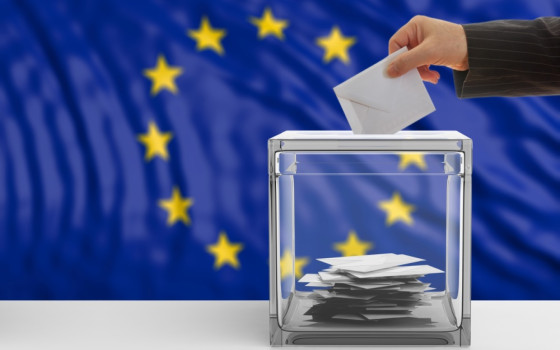
European Parliament elections: The rise of the extreme right, but without any impact on the status of the major parties and decision-making

- Europe and Arabs
- Monday , 10 June 2024 10:37 AM GMT
Brussels: Europe and the Arabs
The results of the European elections that took place against a member of the European Parliament from 27 countries were announced following the elections that took place during the period from 6 to 9 June of this month, and most of the blocs maintained their position in terms of strength and influence on European decision-making, as well as in terms of their right to retain positions whether in the Council. The European Parliament, the Commission, or the European Union.
The People's Party bloc maintained its lead in terms of the largest number of seats, obtaining 184 seats, and the European People's Party bloc, abbreviated EPP, abbreviated PPE. It is a political bloc in the European Parliament consisting of members of the European People's Party member parties, other non-affiliated national parties and independent representatives. The number of seats in the bloc increased by 8 seats compared to the last elections.
In second place came the Progressive Alliance of Socialists and Democrats, winning 139 seats
The Progressive Alliance of Socialists and Democrats is the political group in the European Parliament of the Party of European Socialists. The Progressive Alliance of Socialists and Democrats was officially founded as a socialist group on June 29, 1953, making it the second oldest political group in the European Parliament after the “Alliance of Liberals and Democrats for Europe.” In third place was the “Renew Europe” party, which won 80 seats. Which was established in 2019, and the number of seats lost by the bloc reached 22 seats
In fourth place came the European Conservatives and Reformists bloc, which won 73 seats. It is a political bloc in the European Parliament with a skeptical background hostile to European federalism. It was founded in 2009, and the number of seats increased by four seats compared to the previous elections. In fifth place came the Identity and Democracy bloc, which obtained 58 seats, an increase of nine seats over the previous elections. Identity and Democracy is a political bloc in the European Parliament that adopts a right-wing to extreme-right political trend. It was launched on 12 June 2019 for the ninth session of the European Parliament. It consists of nationalist, right-wing populist and Eurosceptic parties from ten European countries. It replaced the Europe of Nations and Freedom group, which was formed during the eighth session, and in sixth place came the European Green Alliance with the Free Left, which lost 19 seats and now includes only 52 seats.
French President Emmanuel Macron announced on Sunday evening that he had decided to dissolve the National Assembly, after announcing the preliminary results in the European elections.
Macron called for early legislative elections after his party suffered a heavy defeat in the European Parliament elections.
"I have decided to return to you the choice of our parliamentary future through a vote. Therefore, I am dissolving the National Assembly," Macron said in an address to the nation from the presidential Elysee Palace. He added that voting will take place in two rounds, on June 30 and July 7.
This step comes at a time when preliminary results expected from France yesterday, Sunday, showed that the far-right National Rally party advanced by a large margin in the European Union parliamentary elections, defeating the pro-European centrists led by Macron, according to French opinion polling institutes. The Netherlands had also witnessed the rise of The hard right has the number of seats in the European Parliament through the Freedom Party led by Geert Wilders.












No Comments Found